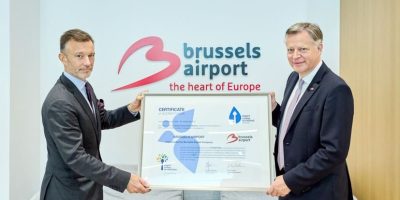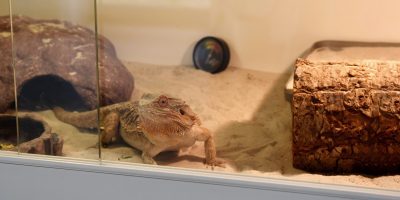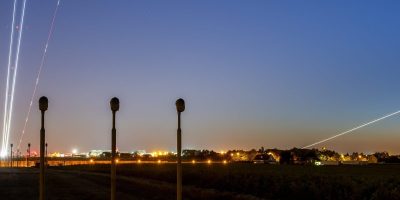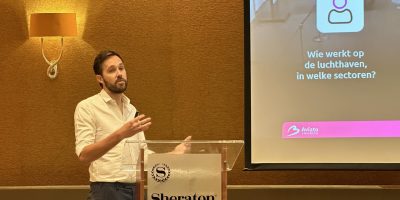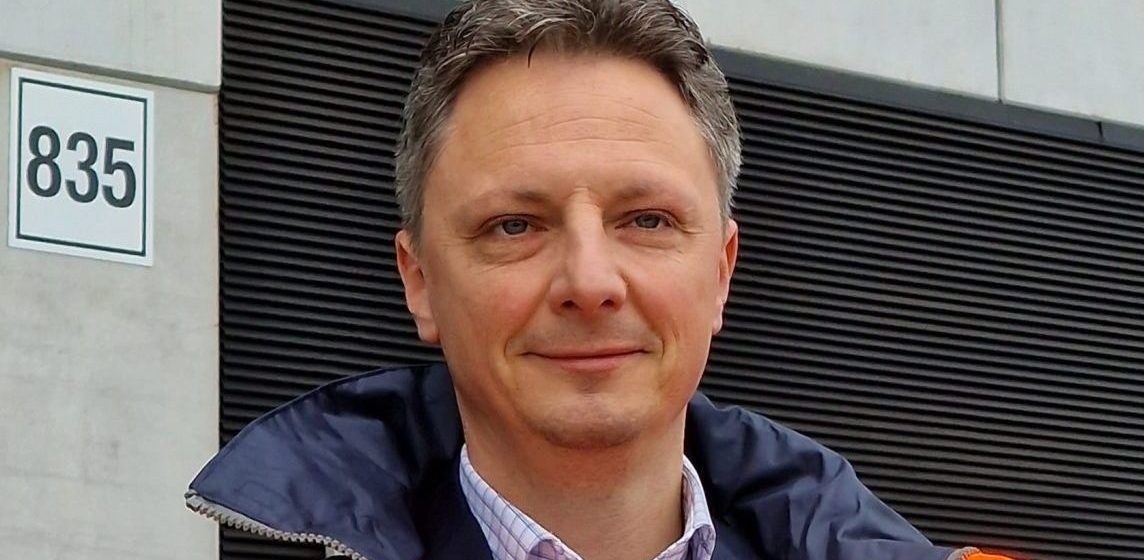
After 100 days as managing director of WFS Belgium, Nathan De Valck still has no regrets about his decision to leave Brussels Airport and join the handler. “In this job, all my past experiences come together,” he says.
Nathan De Valck started his career in air cargo 20 years ago. For the first ten years, he worked at handler Aviapartner, holding both operational and commercial positions. He then moved on to Brussels Airport Company, where he spent ten years in business development and product development. Later, he headed the cargo division. De Valck also had several side jobs. For instance, he was heavily involved in the establishment of Air Cargo Belgium and Pharma.aero, and was at the start of BRUCloud. “When WFS (Worldwide Flight Services) asked if I wanted to take up a new challenge with them, I couldn’t turn down the offer,” explains De Valck. “I know that part of the industry well through my job at Aviapartner. It felt like coming home.”
At some point, you have to put the right people in the right place and also bring in new employees
Support structure
Nathan De Valck’s business card now bears the new job title managing director WFS Belgium. He will be responsible for both the activities in Brussels and Liège. “The position is broad and combines the operational with further market development and financial management,” he explains.
His task at WFS will be to further improve handling quality, closely monitor the company’s financial performance, maximise the use of modern infrastructure and handle more volume. He will also be tasked with building a strong team. “WFS has grown significantly in the past two years. At some point, you have to put the right people in the right place and also bring in new employees. The great thing about WFS is that you have strong responsibility at country level, but at the same time there is a support structure from head office EMEAA (Europe, Middle East, Africa & Asia, ed.).”
Digital strategy
De Valck sees numerous challenges for the industry. After the covid period, all cargo handlers will have to get used to folding back to the normal air cargo business cycle. He sees a second challenge in digitalisation. “We are strongly committed to improving internal processes by no longer working with paper. We are working with more and more digital tools. A good example is our warehouse management system Cargo Spot, with which we simplify a lot of things.”
Brussels has a highly developed community through Air Cargo Belgium
Taking an active role in the communities of both Brussels and Liège is a third challenge. “Brussels has a highly developed community through Air Cargo Belgium,” explains De Valck. “As a handler, we graft on projects related to physical handling, better communication and introducing innovation. We see the same thing happening in Liege, although the digital strategy there is different from that in Brussels. But we consciously choose to act as a loyal partner.”
Expanding services
De Valck also sees the type of services changing. WFS has a strong focus on typical air cargo handling, but also wants to offer new types of services towards forwarders, e-commerce, trucking companies and so on. “The former clear delineation is evolving. You see handlers becoming active in forwarding activities, but also vice versa. We have to play our part in that.”
We also like to bet on renewable energy as a handler
WFS offers airside services in Liege, while in Brussels it does not. “There, the market is regulated,” he explains. “There, there are only three licences. In two years, they will be reissued. We are preparing for that tender process so that we can offer the full portfolio of services to our customers at Brussels Airport as well.”
And, of course, the industry is facing sustainability. “Airports in particular are betting heavily on it because that is where they can make the biggest difference. But also as a handler, we like to bet on renewable energy and – where possible – the use of environmentally friendly materials.”
Good balance
The first hundred days were busy, De Valck admits. But he made good arrangements with his wife and children. “They knew they would see me less in the first three months. At Brussels Airport, I also already had an intensive job. The difference is that I had to travel more then. So the balance has evolved for the better.”
To relax, De Valck likes to go into nature, to run or walk with his family. “I have slightly less time than I used to jog, but it does give me energy. Just like drinking a fresh pint with friends. I like to make time for the social aspect.”

